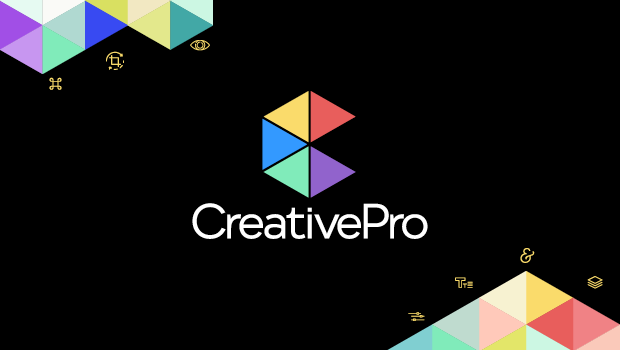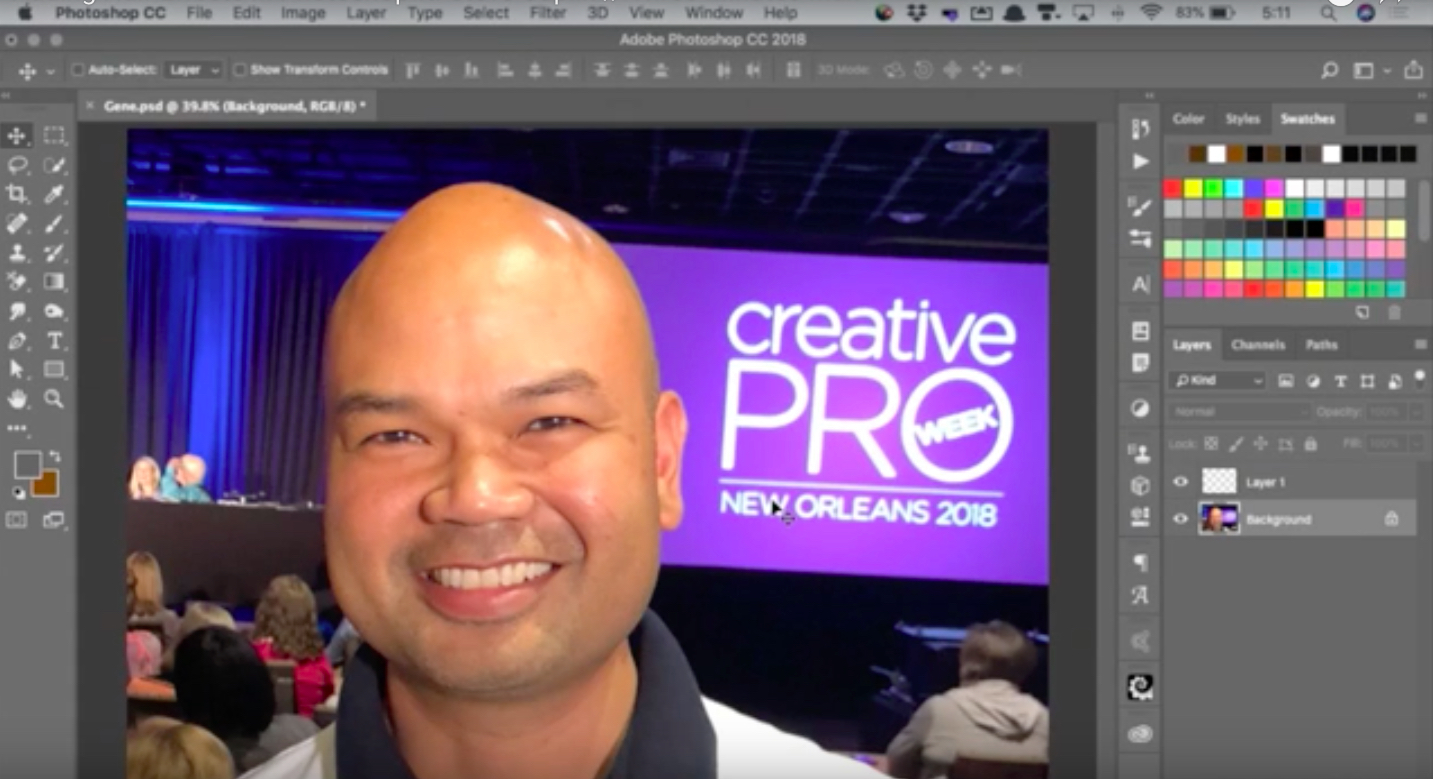For Position Only: You Go, Guy

In my last column I wrote about the scariest news I’d heard in a long time — Microsoft’s $135-million investment in Corel Corp.; this time I’m writing about the most refreshing: Quark founder, chairman, and CTO Tim Gill recently announced that he has sold off his shares in his company and is dedicating his energies — and his moolah — to philanthropic pursuits.
Where this leaves Quark at a tumultuous time in the publishing industry is a question I’ll address in a minute, but the real story to me is Gill himself. His choice is a shining example of someone living with integrity and compassion in an age and industry defined by decadence and indulgence.
F. Scott, Eat Your Heart Out
Of course, my perspective is skewed because I live in San Francisco. The Internet has tweaked our world here in truly unique ways. A get-rich-quick mentality has not only seized many long-time residents but has also brought many Johnny-come-latelies to Babylon by the Bay, in search of their pot of gold, their magic IPO. The result is skyrocketing real estate prices, a stressed and buckling infrastructure, and ever-escalating cost of living increases.
Don’t get me wrong: Technology has done wonderful things for the economy here and for many people’s lives and lifestyles, including my own, and I’m confident that the dot-com shakedown will all be sorted out in due time. (I recently heard a commentator on NPR compare the “old” new economy to the “new” new economy, and it blew me away to think that we’ve already come that far.) But it seems that we all get so wrapped up in our wireless gadgets, our high-speed DSL connections, and our desire for bigger hard drives and faster CD-Rs for all those MP3 files we’re amassing that we forget about what really matters. And then Tim Gill steps into the spotlight making a brief and benevolent announcement, and it brings us back down to earth.
You Can’t Take It with You
The genesis of Gill’s fortune reads like the Great American Fable. With a passion for programming and fresh ideas about word processing, Gill started Quark in the early 1980s with $2,000 loaned to him by his parents. Then Gill partnered with savvy businessman Fred Ebrahimi, who took over the financial side of the business and left Gill to his passion: QuarkXPress. The application both fertilized the seedling desktop publishing industry and grew into a towering redwood itself, casting a defining shadow over the page-layout software market.
And Gill became a millionaire many times over.
For years, Gill has put his money where his beliefs are. He created the Gill Foundation in 1994 in response to the Colorado legislature’s attempt to restrict gay and lesbian civil rights. Since then, the foundation has provided grants, technical assistance, and other resources to organizations that do everything from support alternative families to perform AIDS research to protect women’s reproductive rights. By the end of 1999, Gill’s endowments had totaled $163 million. Now he has announced that he plans to transfer “most of his assets” to the foundation “over the next few years,” according to Gill Foundation Executive Director Katherine Pease. “For us and the communities we serve, that is a profound commitment,” Pease wrote recently in a public letter about the impact of Gill’s decision on the foundation. “Because of Tim’s continued generosity, we’ll be able to help more organizations and affect more lives. It’s all in an attempt to fulfill our mission of serving as a catalyst and resource for communities in pursuit of justice.”
What I find moving about Gill’s philanthropy is that he’s reaching beyond high-tech, and far beyond anything that can be construed as nurturing of a profit motive. Sure, the Foundation’s mission is based on Gill’s personal and political values, but his values are refreshingly altruistic. He’s not funding scholarships for disadvantaged youths who plan to major in programming; he’s fighting for social justice, for people whose lives probably have nothing to do with high-tech, much less graphic design and page layout.
Object of Desire
Gill’s departure will certainly have an affect on Quark, but frankly I’m not worried. We don’t know who bought Gill’s 50-percent stake in the privately held company — Ebrahimi is the logical guess, and the company says it’s business as usual in Gill’s wake. I’m inclined to believe that, because Gill hadn’t been closely involved with daily operations for several months.
Some believe it’s only a matter of time before Ebrahimi sells Quark. Microsoft and Adobe are the obvious potential buyers. As a friend of mine put it, “Without batting an eyelash, Microsoft would suddenly be in the running for a real piece of the desktop publishing pie.” And if Adobe bought Quark it could, of course, quash QuarkXPress in a heartbeat and clear the way for InDesign to ascend to the page-layout throne. But given each company’s shift toward Internet-based product lines, not to mention an overall transition away from paper-based publishing, I can’t imagine that such an acquisition is critical to either Microsoft’s or Adobe’s long-range vision. Although one pundit has likened QuarkXPress to Lotus 1-2-3 as a one-trick pony that’s not keeping pace with a changing market, I wouldn’t go that far — at least not yet. I do think Quark can massage at least a few years of life out of its vision for media-independent publishing.
Aw, Shucks
I hate to sound like an obituary, but Gill will be sorely missed in the publishing software industry, not just for his technical genius but for his warmth and largess. Joel Friedman, executive director of the Heidelberg Digital Imaging Association, said Gill is the only keynote speaker he’s ever hired who refused to accept a complimentary hotel room or a even limo ride from the airport. At the HDIA Atlanta conference in 1998, Friedman recalled, Gill spent two hours chatting about QuarkXPress’s features, functions, and benefits with a dozen members over lunch. “I think he enjoyed that much more than giving speeches,” Friedman said. “Afterward I told him it was very nice of him to make time to talk with these people, and he seemed taken aback, saying, ‘What do you mean? I’m just a regular person, just like them.’
“‘Yeah,’ I said, ‘except for the fact that you’re on Fortune magazine’s list of the 400 wealthiest Americans.’ And he just waved it away. ‘Oh, that,’ he said. ‘Big deal.'”
This article was last modified on January 6, 2023
This article was first published on November 9, 2000
Commenting is easier and faster when you're logged in!
Recommended for you

CreativePro Video: Adding Hair Effects in Photoshop
In this week’s CreativePro CreativePro video, Steve Caplin uses Photoshop to mak...

Exporting All Stories to Text or RTF Files
When you need to extract all the stories from a layout -- to standalone text fil...

Bitstream to Debut "Pageflex: One Application for All Things Variable" at GraphExpo 2006
Bitstream Inc. (NASDAQ: BITS, www.bitstream.com) and www.pageflex.com) today ann...



